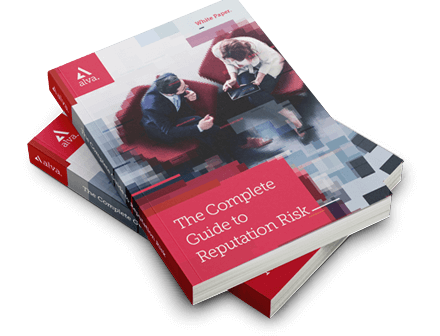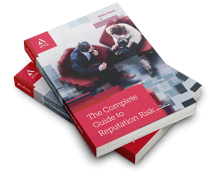Six strikes and you’re out: reputation shock theory
Wave theory isn’t just for physicists: it can equally be applied to the study of a company’s reputation. Contrary to sensationalist media reporting, it isn’t destroyed in a single blow: while standing with stakeholders may take a knock following a PR disaster, recovery is usually possible. By contrast, research shows that, like waves crashing on the shore, it takes three to six mini-shocks to wear away reputation.
So is it a case of three (to six) strikes and you’re out? The data suggests so. On examining major reputational crises of the last 15 years, a pattern emerges of a series of smaller bumps in the road shaking consumer and shareholder confidence.
The Toyota case
The tale of Toyota is a case in point. While recalls are common in the motor industry, Toyota’s miscommunication over a series of defects in its cars ended in lasting reputational damage. In 2009-10, despite a long-held reputation for quality, the company saw its share value dip by 15% following a global recall for an accelerator pedal fault. A criminal investigation in the US followed, then the news that 3,500 jobs were being culled at its Derbyshire plant. In 2011, the Japanese Tsunami hit, disrupting supply and undermining sales.
Then in 2014, in the fifth major recall in a matter of months – and on the back of a $1.2bn settlement in the US over the reporting of safety issues – 6.4m vehicles globally were recalled for steering wheel and airbag defects. The accumulated recall of 25m vehicles over 2.5 years, in the face of 21m sales, undermined both the company’s bottom line, and reputation for reliability.
alva’s reputation intelligence quantifies reputation based on media commentary, and what consumers, staff and other stakeholders are saying about a company. Tracking a sample size in the millions ensures reliable trend data: and analysis shows a build-up of significant public issues generates a downward reputational trend.
When an insignificant event becomes a collapse in reputation
This is neither progressive nor steady: after an initial issue, reputation can rebound quickly, but once the scenario has repeated several times, even an insignificant event can initiate reputation collapse. The company’s standing drops substantially and does not recover. It shifts to a new, lower baseline, and it can take years to work back from that point. As we saw with our Cybersecurity case study, this phenomenon is exacerbated when it is the same issue that is repeated.
Thomas Cook´s mistakes in managing its reputation
Travel company Thomas Cook features in a cautionary tale. The fatal carbon monoxide poisoning of Christianne and Robert Shepherd, aged seven and six, at a Corfu hotel in 2006 might have been weathered, but for the company’s poor handling of the crisis. It was cleared of wrongdoing at a criminal trial in Greece in 2010, however the pronouncement brought the event, and all the emotive connotation of child tragedy, back into the public eye.
Public condemnation resulted when the company failed to issue an apology to the bereaved parents, having accepted £1.5m of compensation from the hotel group. Chief executive Peter Fankhauser insisted that there was nothing to apologise for – its stakeholders felt differently. When it became clear that share prices were taking a hit, Thomas Cook donated the compensation to children’s charity Unicef, and in a statement Fankhauser finally apologised for “all the family had gone through” – but with better communication, and a display of human feeling, the travel firm might have avoided a stain on their reputation which will be hard to expunge.
The lesson
The lesson from all of this is clear; more often than not companies can avoid being on the end of a reputation crisis by heeding the warning signs before it’s too late. While the media may present reputation risk as a bolt from the blue, in the majority of cases this simply isn’t true.
Be part of the
Stakeholder Intelligence community











